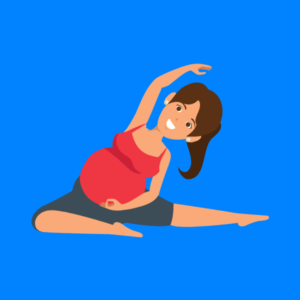It’s no hype to say breast milk is nature’s perfect food. You’ve also most likely heard that “breast is best” for baby. Breastfeeding is the best thing you can do for you and your baby, and even though it comes with its challenges, it is worth the pain.
It’s good to find out as much as you can about breastfeeding before giving birth. It may help you know most of all you need to know about breastfeeding and make you feel more confident when you start breastfeeding your baby. You’ve probably attended antenatal classes which will usually teach you the most important aspects of breastfeeding, and how to tackle breastfeeding challenges.
It is advised to start breastfeeding as soon as you can after giving birth if you are able to. Babies are very keen to suck after birth and the sucking reflex is at its most powerful about 30 to 60 minutes after birth. So plan to breastfeed as soon as you can and even if you’re unable to, just do so as soon as you can. It does not mean you will not be able to breastfeed properly if you do not do it early.
When the baby is given to you at birth, having skin to skin with your baby helps to bond with your baby. It also helps your baby use her natural reflex to help them find the nipple and latch on.
Don’t worry though, you’ll still be able to bond with and breastfeed your baby if skin-to-skin contact is delayed for some reason, for example if your baby needs to spend some time in special care or even if you’ve had a caesarean.
Also, a thing to note is that even though most babies are very eager to breastfeed immediately after birth, every baby is different so you don’t need to worry if your baby isn’t keen immediately. Also, don’t panic if your newborn seems to have trouble finding or staying on your nipple. Breastfeeding requires patience and lots of practice. So getting a head start before delivering, lots of practice and the support of your midwife, should be available if you are having any issue after birth.
How would you know your baby is hungry?
The following are the early infant hunger cues that your baby could be starting to get hungry:
- Making faces
- Making lip-smacking sounds
- Moving their hands to their mouth.
- Sucking on hand , or your finger
- His arms and legs are moving all around.
- Moving towards your breast or turning their head when you touch their cheek.
Crying is a late sign of hunger, though they cry for a lot of reasons, not only when hungry. By the time your baby is crying because of hunger, she’s most likely getting frustrated, too. Also, if the baby becomes too stressed or tense, it can be difficult to get her to latch on and breastfeed. So offer a feed immediately you notice your baby giving you the earlier signs. It will often be easier as you’ll both be calmer and more relaxed.
Follow these steps to begin your baby’s first feed
- Hold your baby close to your breast.
- Stroke your baby’s hands and feet.
- Wait for signs your baby is hungry (early feeding cues).
- Attach your baby to your breast.
When you start breastfeeding, your breasts will release an early milk called Colostrum. It is the first secretion from your breast before your full milk comes in, yellow and thick in consistency. It is highly potent in antibodies with a vital blend of protein, vitamins and minerals that will help your baby fight off infection. Regularly suckling from the start will help stimulate your body to produce the next stage of milk within a few days.
The next stage is Transitional milk. Its high protein milk that come sin about 3-7 days after baby is born. It contains lower levels of immunoglobulins and protein and not as potent as colostrum but has more lactose, fat and calories. It gradually transitions to mature milk over the course of a few days or a week.
The final stage is Mature milk which comes in about 2 weeks postpartum. it is very thin and is a combination of hindmilk and foremilk. When your child starts a feed, the first milk to flow out of your breast is foremilk which is very thin, watery, and lower in fat and calories. As you continue to breastfeed, the hindmilk will follow which is creamier, thicker, and higher in fat and calories. Mature milk is packed with all the fat and nutrients your baby needs to grow.
Breastfeeding your newborn
A newborn baby can feed 8 to 12 times in 24 hours. So every time your baby feeds, it’s sending that signal to your body to know how much breast milk you need to produce.
Breastfeeding is a supply and demand system. The more demand on the system through breastfeeding the baby, the more milk the body make. Sometimes the body takes a day or two to catch up to a baby’s increased breastfeeding demand during a growth spurt. In the early days, breastfeeding often is vital to help you build up a good milk supply. Breast milk meets all your baby’s food and drink needs for the first 6 months.
Your milk tends to “come in” (Transitional milk) around days 3 to 5.You may notice your breasts becoming fuller and firmer. Then, your baby may develop a more regular feeding pattern. This will help you adjust to producing the right amount of milk. But there may be days when your baby wants to feed a lot.
Breastfeeding takes patience and practice. In the early days
⦁ hold your baby in skin-to-skin contact after birth, if possible
⦁ breastfeed your baby as soon as possible after birth
⦁ feed your baby as often as they want, this will help you stay comfortable
⦁ breast milk may leak from your nipples
⦁ change your breast pads regularly or at every feed
So what makes breastfeeding so unique?
Breast milk has the perfect combination of proteins, fats, vitamins, and carbohydrates. There is nothing better for the health of your baby. It is perfectly designed to nourish your baby and protect her against illness when she’s at her most vulnerable in her early months.
It is recommended to feed your baby only breast milk in the first six months (exclusive breastfeeding before introducing solids.The longer you breastfeed, the longer the protection lasts and the greater the benefits.
The benefits for your baby include:
- It’s the perfect combination of proteins, fats, vitamins, and carbohydrates which is easy for your baby to digest than baby formula.
- Sometimes called your baby’s first immunisation, breastmilk contains disease-fighting compounds that protects your baby against illness. Breastfed babies are much less likely than formula-fed babies to suffer from allergies, ear infections, colds
- Lower risk of childhood leukemia and sudden infant death syndrome (SIDS).
- Infections, with fewer visits to hospital as a result
- Development of nervous system and brain development. A likely reason is that breast milk contains the fatty acid DHA (docosahexaenoic acid), which is important for brain development and growth.
- Better poo: As breastmilk is easier to digest, it is less likely to cause diaper rash and constipated poos.
Benefits to you:
Some of the benefits of breastfeeding for you are:
- Breastfeeding can build a strong emotional bond between you and your baby
- When a baby latches on your breast to feed in the early days, it prompts the release of oxytocin, which in turn, causes your uterus to start shrinking.
- Can help you lose baby weight as long as you’re eating healthily and keeping active
- It can act as a form of natural birth control but never rely on this as you can return to ovulating anytime!.
- It reduces the risk of pre-menopausal breast cancer, ovarian and uterine cancer, endometriosis and type 2 Diabetes
It needs to be recognised that full-time breastfeeding may not work for all moms and there’s also the added benefit of supplementing breastfeeding with formula. So don’t beat yourself up about it, if you are unable to breastfeed fully. As long as you are feeding your baby with the nourishment he/she needs, that’s what’s important.



